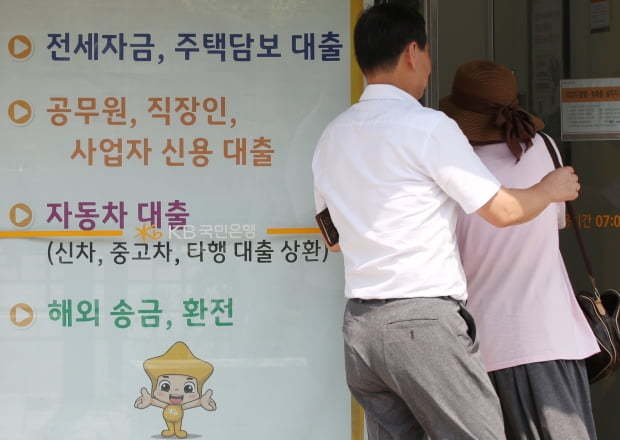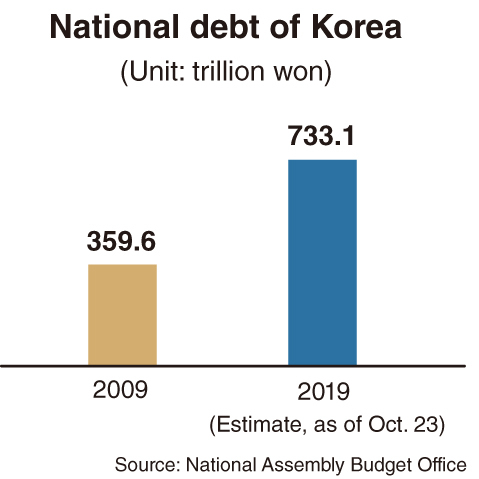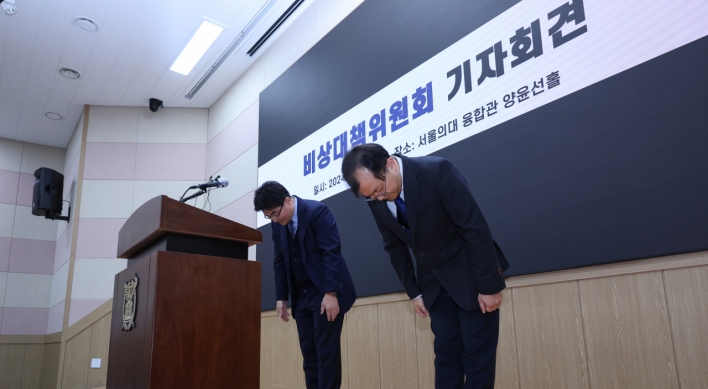[News Focus] Construction policy risks undermining fiscal soundness
By Kim Yon-sePublished : Oct. 27, 2019 - 17:08
SEJONG -- Enterprises under the Moon Jae-in administration are investing less in construction and facilities, with 2018 data revealing year-on-year contraction in both areas.
These are the first simultaneous drops in corporate investment in construction and facilities that South Korea has experienced in a decade. The last time was in 2008, when the nation was affected by the crisis that followed the US subprime mortgage collapse.
Previously, when anti-speculation measures led the construction industry to sag, past administrations pursued deregulation so that businesses could vitalize investment in facilities.
Likewise, when corporate investment in facilities was lackluster, past administrations strived to revive the construction sector by easing regulations governing real estate transactions.
This was true not only for the conservative Lee Myung-bak (2008-2013) and Park Geun-hye (2013-2017) administrations, but also for the liberal Roh Moo-hyun administration (2003-2008).
These are the first simultaneous drops in corporate investment in construction and facilities that South Korea has experienced in a decade. The last time was in 2008, when the nation was affected by the crisis that followed the US subprime mortgage collapse.
Previously, when anti-speculation measures led the construction industry to sag, past administrations pursued deregulation so that businesses could vitalize investment in facilities.
Likewise, when corporate investment in facilities was lackluster, past administrations strived to revive the construction sector by easing regulations governing real estate transactions.
This was true not only for the conservative Lee Myung-bak (2008-2013) and Park Geun-hye (2013-2017) administrations, but also for the liberal Roh Moo-hyun administration (2003-2008).

Further, so far this year investment both in facilities and construction has remained sluggish compared with 2018. The situation has been a significant factor hampering the growth of the gross domestic product.
In remarks he delivered at an Oct. 17 meeting with economy-related ministers, President Moon identified construction, rather than facilities, as the government’s major investment target.
Officials at the Ministry of Economy and Finance said the president’s choice stems from the fact that investment in the construction sector accounts for 15 percent of GDP, more than investment in facilities.
According to the officials, the president’s remarks indicate that the government will prioritize steps that make it easier for prospective homeowners to buy property and will support increased homeownership by establishing better transportation systems -- for example, linking Seoul with new residential towns in Gyeonggi Province via the Great Train Express.
Still, those sorts of policies have nothing to do with deregulation of the property market. Policies to increase the supply of apartments for people in lower-income brackets and shorten their commuting hours by extending city highways and train services inevitably require increased government expenditures.
But fiscal expansion means increasing the national debt, as the government has to raise the funds by issuing treasury bonds or using up a great deal of taxpayers’ money.
Market insiders say this approach ultimately undermines fiscal soundness, citing the already snowballing national debt. The sovereign debt-to-GDP ratio, which is estimated to have hovered around 38-39 percent in 2018, is projected to reach 45 percent within three years, when the debt is expected to hover around 1,160 trillion won.

According to the National Assembly Budget Office, the national debt was estimated at 733.1 trillion won ($624.9 billion) as of Oct. 24. This marked a 10.9 percent (or 72.4 trillion won) increase in 22 months, compared with 660.7 trillion won at the end of 2017. It also represented a surge of more than 100 percent from a decade ago, at the end of 2009, when the debt stood at 359.6 trillion won.
Parliamentary estimates also suggest that per capita national debt surpassed the 14 million won mark (14.13 million won) for a population of 51.84 million this year, after exceeding the 13 million won mark for the first time in February 2018.
A research analyst in Seoul compared the recent figure with the 10.52 million in per capita sovereign debt posted in 2014. “The burden of national debt per citizen has increased by 34 percent over the past five years,” the analyst said.
Given this situation, some insiders in the real estate industry are cautiously predicting that the Moon government will have no choice but to shift its property market policy toward deregulation to vitalize apartment transactions. At the present stage, mortgage loans from financial firms to consumers cannot exceed 40 percent of the price of a home in areas that have been designated as prone to speculation.
“Slack housing transactions have brought a sharp drop in tax revenue due to a fall in (collected) capital gains taxes and acquisition taxes,” said a real estate agent in Seoul. “The current tough rules on mortgage loans are frustrating home buyers.”
A real estate agent in Gyeonggi Province said he could not rule out the possibility that the Moon administration would eventually decide to boost the economy by easing loan regulations, as the Park Geun-hye administration did.
Critics, however, point to the coming 2020 general election, slated for April 15, saying such a policy change would invite backlash from opposition parties.
An easing scenario could also mean admitting policy failure: Despite a series of property-stabilization measures, the astronomically high prices of apartments in Seoul since 2017 have yet to come down.
By Kim Yon-se (kys@heraldcorp.com)


![[Exclusive] Korean military set to ban iPhones over 'security' concerns](http://res.heraldm.com/phpwas/restmb_idxmake.php?idx=644&simg=/content/image/2024/04/23/20240423050599_0.jpg&u=20240423183955)
![[AtoZ into Korean mind] Humor in Korea: Navigating the line between what's funny and not](http://res.heraldm.com/phpwas/restmb_idxmake.php?idx=644&simg=/content/image/2024/04/22/20240422050642_0.jpg&u=)

![[Graphic News] 77% of young Koreans still financially dependent](http://res.heraldm.com/phpwas/restmb_idxmake.php?idx=644&simg=/content/image/2024/04/22/20240422050762_0.gif&u=)




![[Pressure points] Leggings in public: Fashion statement or social faux pas?](http://res.heraldm.com/phpwas/restmb_idxmake.php?idx=644&simg=/content/image/2024/04/23/20240423050669_0.jpg&u=)







